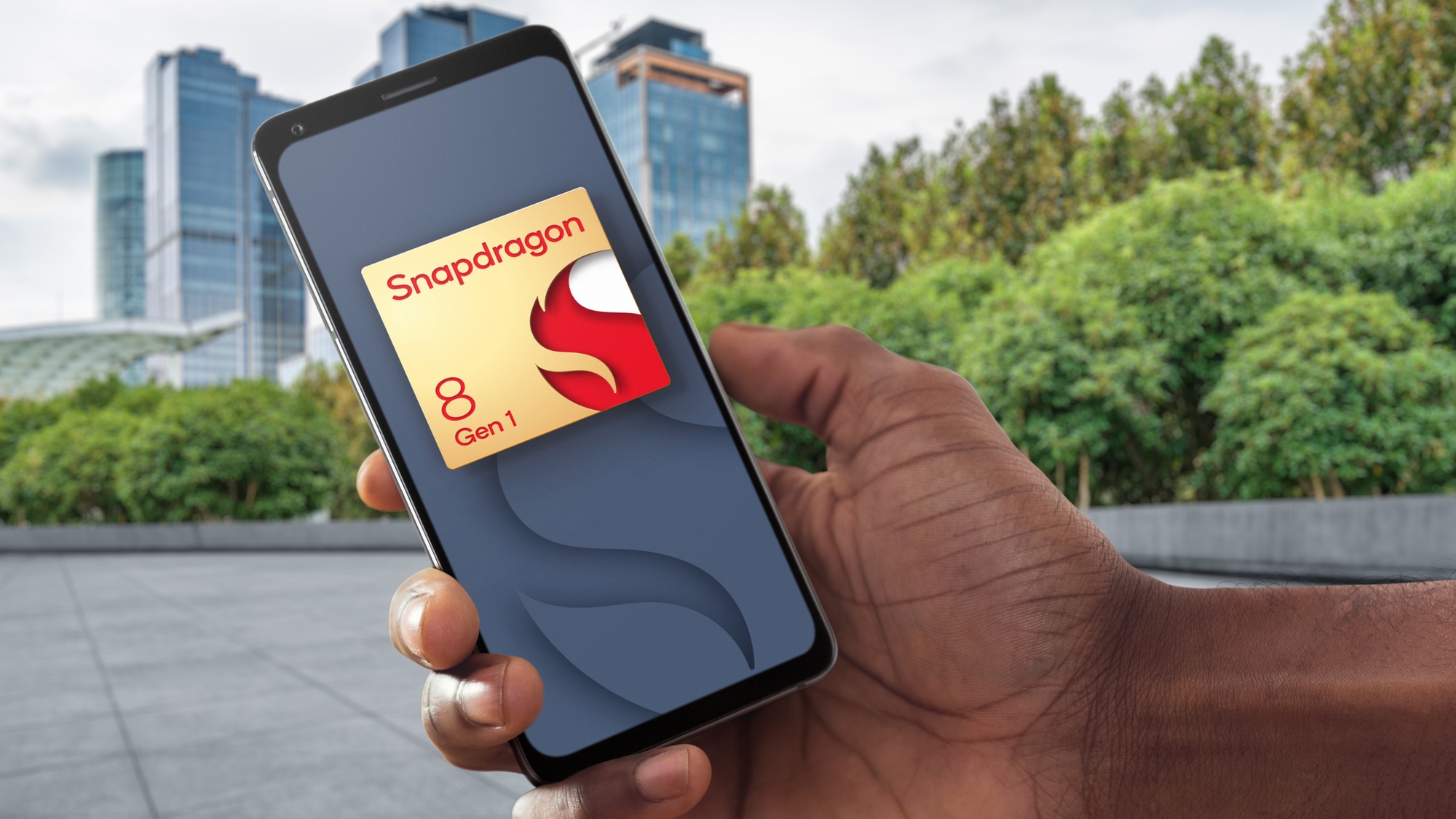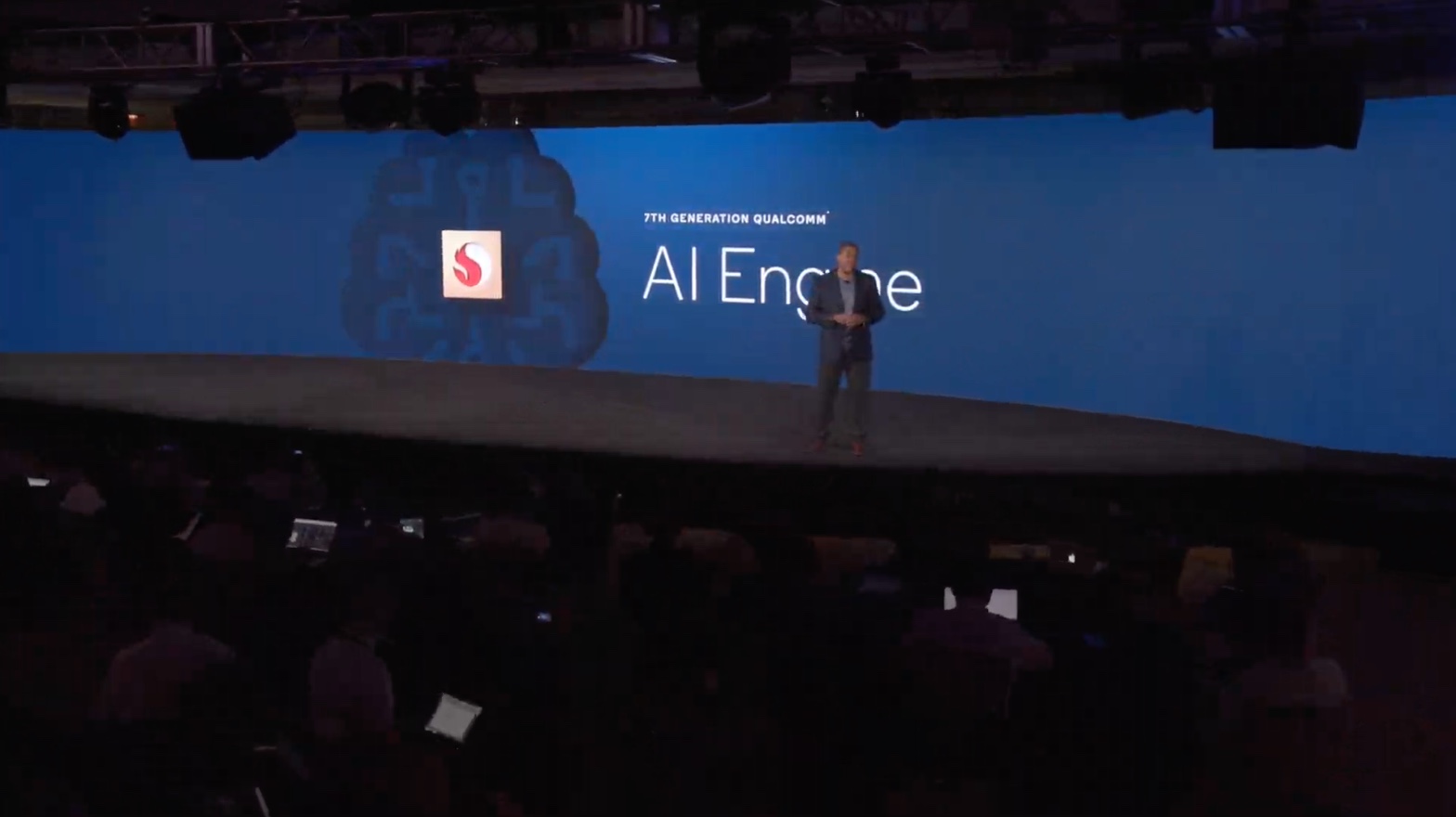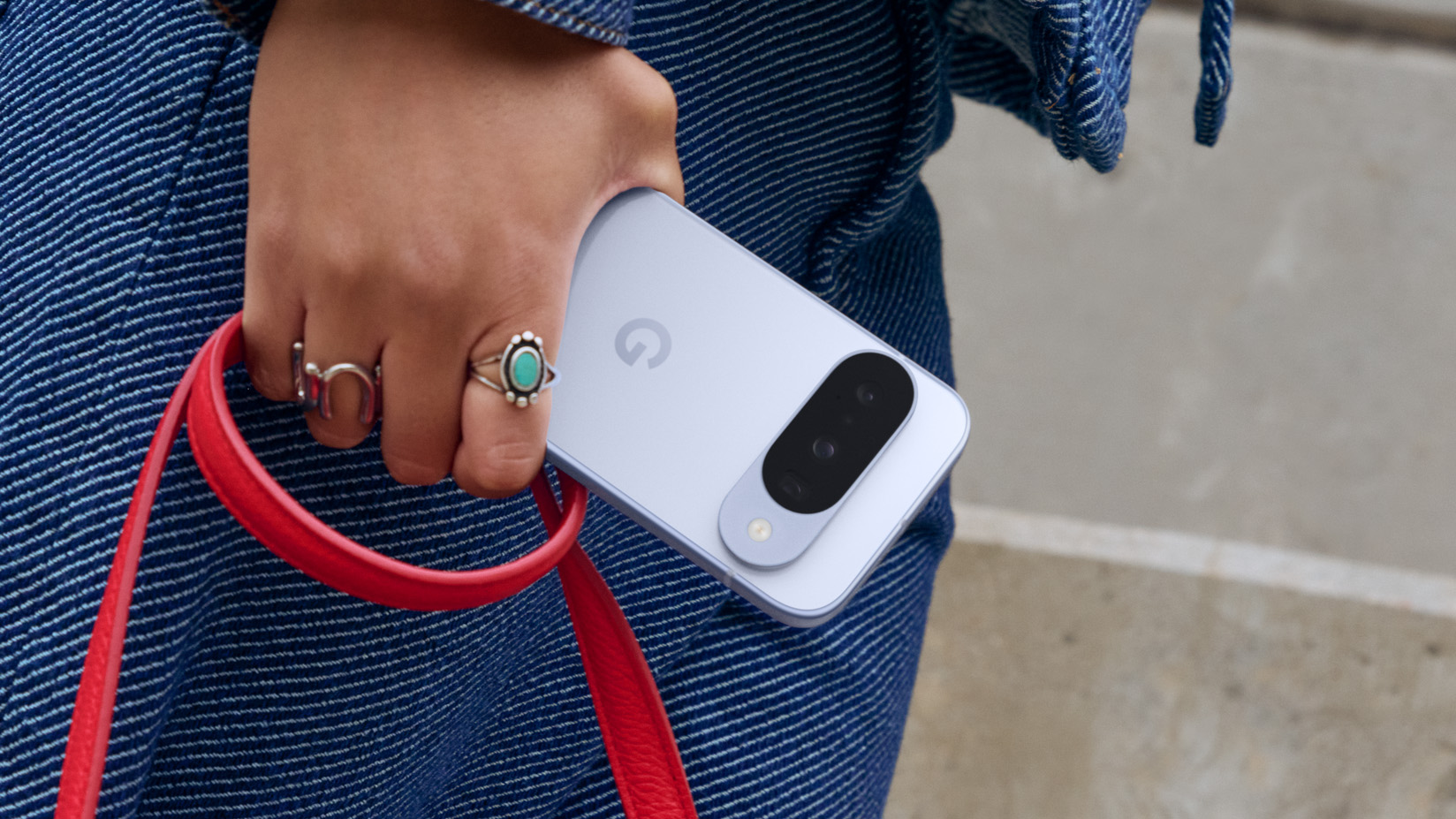Snapdragon 8 Gen 1 benchmarks appear — and the iPhone 13 just shrugged
Initial benchmarks show only a modest performance gain for Qualcomm's new mobile chipset

The Snapdragon 8 Gen 1 system-on-chip that will power many top Android phones in 2022 made its debut just last week, but some early benchmarks detailing the chipset's performance are already in. And it doesn't sound as if the iPhone 13 has much to worry about when it comes to future Android phones outperforming it.
Benchmark results published at multiple tech sites indicate that while the Snapdragon 8 Gen 1 improves on the performance of previous Qualcomm chipsets, it's still no match for the A15 Bionic processor that's inside the latest iPhones.
PCMag, XDA Developers and BGR are among the publications that tested the Snapdragon 8 Gen 1 on a Qualcomm-supplied reference device and posted their findings today (Dec. 7).
The numbers will be of interest to fans of Android phones since Qualcomm's top-of-the-line silicon usually finds its way into many leading flagship. The Samsung Galaxy S22 is expected to feature the Snapdragon 8 Gen 1, for example, and the co-founder of OnePlus has already confirmed that the upcoming OnePlus 10 is going to run on Qualcomm's newest chip.
The results in Geekbench 5, a synthetic benchmark that reflects general performance, were pretty consistent across the board, so we'll use PCMag's results. In that test, the Snapdragon 8 Gen 1 posted a single-core score of 1,235 and a multicore score of 3,837.
| Phone | Processor | Geekbench 5 single-core | Geekbench 5 mulitcore |
| Qualcomm Reference Device | Snapdragon 8 Gen 1 | 1,235 (via PCMag) | 3,837 (via PCMag) |
| Samsung Galaxy S21 Ultra | Snapdragon 888 | 1,123 | 3,440 |
| OnePlus 10 Pro | Snapdragon 888 | 1,126 | 3,685 |
| Asus ROG Phone 5 | Snapdragon 888 | 1,125 | 3,721 |
| Google Pixel 6 Pro | Google Tensor | 1,027 | 2,760 |
| Apple iPhone 13 Pro Max | A15 Bionic | 1,720 | 4,549 |
Those numbers show some improvement over phones powered by the Snapdragon 888, the predecessor to the Snapdragon 8 Gen 1. The Asus ROG Phone 5, one of the best gaming phones we've tested this year, posted Geekbench 5 scores of 1,125 in the single-core test and 3,721 in the multicore portion. The Snapdragon 8 Gen 1 device tested by PCMag beat those results by 10% and 3%, respectively.
Similarly, the Snapdragon 8 Gen 1-powered reference device outperformed the single- and multicore results of the Samsung Galaxy S21 Ultra (1,123 and 3,440) and OnePlus 9 Pro (1,126 and 3,685), which both use a Snapdragon 888 chipset. The Pixel 6 Pro, powered by a Google-designed Tensor processor, lags well behind the Snapdragon 8 Gen 1 in Geekbench 5 results, posting single- and multicore scores of 1,027 and and 2,760, respectively.
Get instant access to breaking news, the hottest reviews, great deals and helpful tips.
That's the good news for the Snapdragon 8 Gen 1, even if the results don't really square with the 20% speed improvement Qualcomm is promising for the chipset's Kryo CPU. The bad news is that the A15 Bionic from Apple continues to smoke the Snapdragon in this performance metric.
The iPhone 13 Pro Max produced a single-core result of 1,720 and a multicore score of 4,549 when we tested the phone this fall. Both those numbers are well ahead of what testers were seeing from the Snapdragon 8 Gen 1. In XDA's results, in fact, the Snapdragon 8 Gen 1 barely outperformed results from a Snapdragon 888 reference device the publication had previously tested.
So what gives? For starters, the results we're seeing in these Snapdragon 8 Gen 1 tests were produced on a reference device, not a shipping phone that's been optimized for performance. Qualcomm has also been upfront about the fact that its silicon isn't geared toward the performance bursts that Geekbench measures, but designed to produce more sustained performance. In other words, what you see from a benchmark — while helpful in comparing one phone to another — doesn't necessarily reflect real-world performance.
Snapdragon 8 Gen 1: Better news for graphics

The results were a bit more encouraging in other tests run by publications that got a sneak preview of the Snapdragon 8 Gen 1. In the GFXBench GPU benchmark, PCMag reports that the Snapdragon 8 Gen 1 device scored higher than any other iPhone or Qualcomm-powered phone in tests using new Vulkan APIs. (We don't typically run GFXBench when we test phones so we have no numbers of our own to compare to what the Snapdragon 8 Gen 1 produced.)
The Adreno GPU on the Snapdragon 8 Gen 1 has been optimized for Vulkan, according to Qualcomm. The chip maker has said that the new GPU is capable of a 30% improvement in speed and 25% more power savings than the Snapdragon 888 produced.
Meanwhile, XDA ran MLPerf, a benchmark that measures artificial intelligence performance, on Qualcomm's new chipset. That's a particularly interesting test since Qualcomm has touted the improvements to the AI Engine on board the Snapdragon 8 Gen 1.
According to XDA, the Snapdragon 8 Gen 1 device posted the best scores in computer vision and natural language processing inferencing benchmarks when compared to devices running on Snapdragon 888, Dimensity 1100 and Exynos 2100 silicon.
Looking beyond speed
Watching Qualcomm's Snapdragon 8 Gen 1 unveiling a week ago, I got the sense that while improved performance is certainly a goal for the chip maker, the real improvements for next year's Android phones will be in the camera, gaming and AI experiences the new chipset can power.
Apple looks like it's going to hold on to its speed crown, but Qualcomm clearly is betting that other areas are more critical to winning the mobile processor race.
Philip Michaels is a Managing Editor at Tom's Guide. He's been covering personal technology since 1999 and was in the building when Steve Jobs showed off the iPhone for the first time. He's been evaluating smartphones since that first iPhone debuted in 2007, and he's been following phone carriers and smartphone plans since 2015. He has strong opinions about Apple, the Oakland Athletics, old movies and proper butchery techniques. Follow him at @PhilipMichaels.
 Club Benefits
Club Benefits






